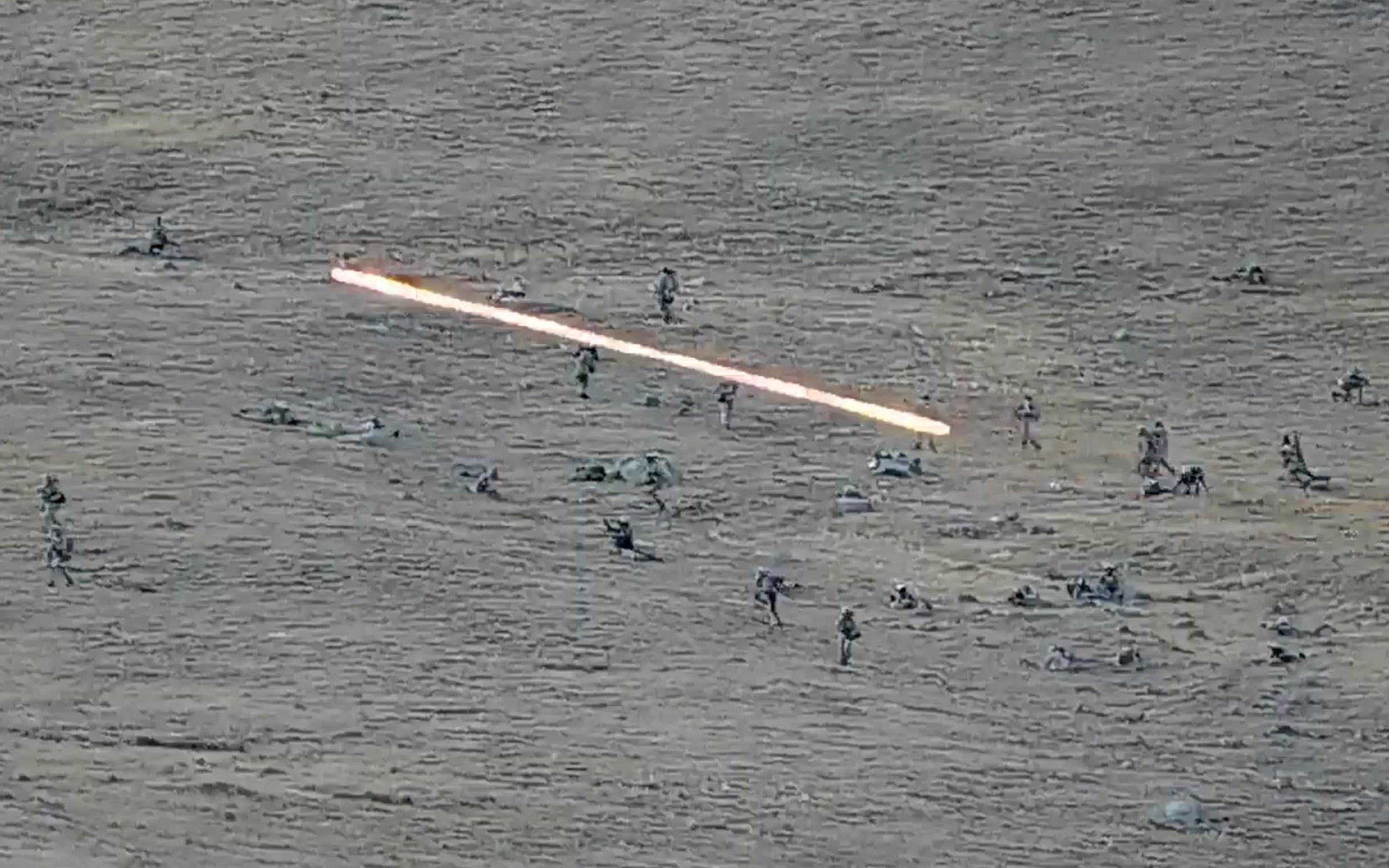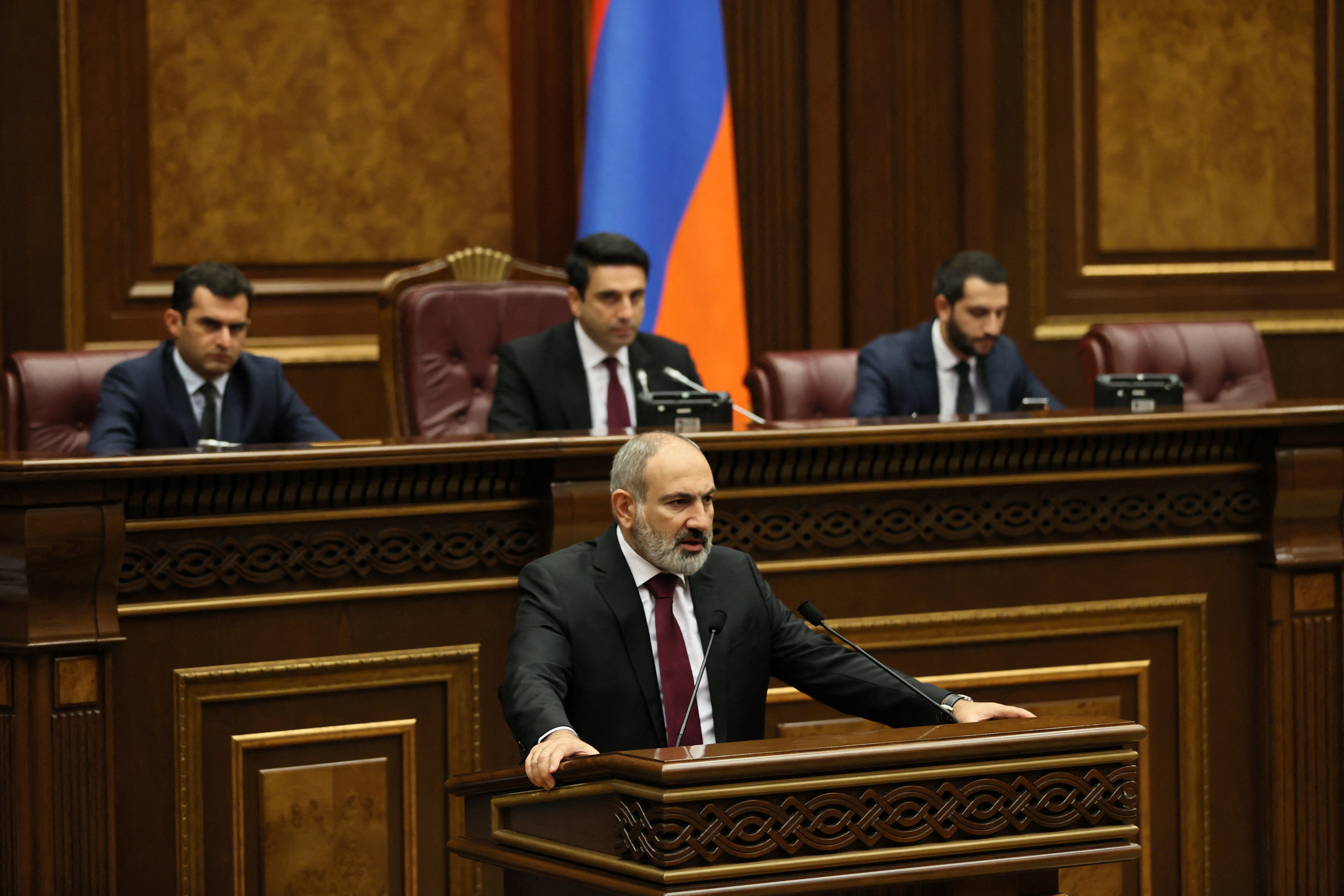Armenia, Azerbaijan conflict erupts as US warns Russia against ‘stirring the pot’
Conflict began in 1980s when both countries were under Soviet rule

A ceasefire between Armenia and Azerbaijan was observed for barely 15 minutes on Tuesday morning before the decades-old hostility between the two countries resumed, with fresh skirmishes leading to the deaths of at least 49 soldiers.
The cost of the renewed conflict was likely higher as only Armenia reported the number of deaths on its side after the clashes with Azerbaijan over the disputed territory of Nagorno-Karabakh.
Azerbaijan acknowledged casualties on its side as well but did not elaborate.
Armenia accused Azerbaijan of shelling towns near the border, including Jermuk, Goris and Kapan, which led the country to respond to the “large-scale provocations”. Azerbaijan claimed it was attacked by Armenia.
The renewed conflict led to powerful allies Russia and the US calling on the Caucasus countries to cease hostilities and observe a ceasefire agreement that was supposed to be in place from 9am.
US Secretary of State Antony Blinken also said he was concerned that Russia could try to “stir the pot” in the conflict between Azerbaijan and Armenia.
“Whether Russia tries in some fashion to stir the pot, to create a distraction from Ukraine, is something we’re always concerned about.”
The Russian foreign ministry in a statement on Tuesday morning said it had brokered the ceasefire which, according to Azerbaijani media, lasted for just 15 minutes. Russia had sent thousands of peacekeepers to the region as part of a deal to end the hostilities.
Armenian prime minister Nikol Pashinyan accused Baku of shelling border towns because it did not want to negotiate over the status of Nagorno-Karabakh – a disputed enclave inside Azerbaijan with an ethnic Armenian-majority population.
“Intensive shooting is continuing – started as a result of a large-scale provocation by the Azerbaijani side. Armenia’s armed forces have launched a proportionate response,” the Armenian Defence Ministry had said.
Later in the day Mr Pashinyan, in a speech to parliament, said the intensity of hostility had reduced, but active fronts still existed in some areas.

Azerbaijan, which re-established full control over the disputed territory in 2020 in a six-week-long conflict that killed thousands, claimed to have come under “intense shelling”.
“Several positions, shelters and reinforced points of the Azerbaijan armed forces … came under intense shelling from weapons of various calibres, including mortars, by units of the Armenian army,” Russian news agencies quoted Azerbaijan’s defence minister as saying.

“As a result, there are losses in personnel and damage to military infrastructure.”
Following the clashes, the Armenian prime minister dialled Russian president Vladimir Putin, French president Emmanuel Macron and US secretary of state Antony Blinken to discuss the situation.
“As we have long made clear, there can be no military solution to the conflict,” said Mr Blinken.
The French president said Paris would bring up the topic of clashes between the two countries at the UN Security Council (UNSC).
Armenian defence minister Suren Papikyan spoke to his Russian counterpart Sergei Shoigu and reportedly agreed to take steps to stabilise the situation on the border.
Meanwhile, Azerbaijani foreign minister Jeyhun Bayramov held a conversation with his Turkish counterpart Mevlut Cavusoglu, who called for Armenia to “cease its provocations”.






Join our commenting forum
Join thought-provoking conversations, follow other Independent readers and see their replies
Comments